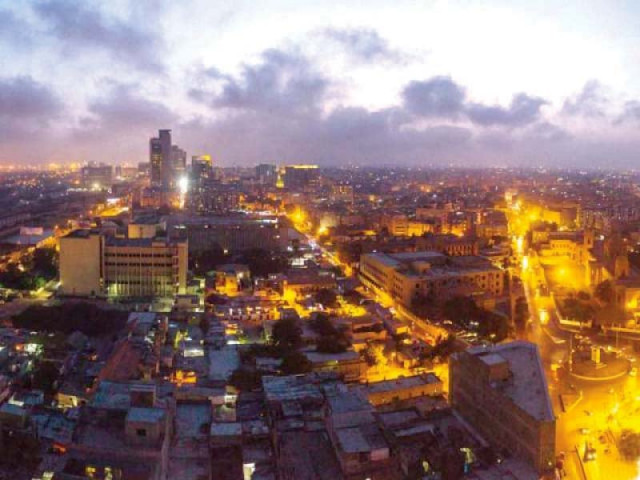Some decisions weaken state’s writ
Compromising with traders, hopes Zaidi would reform FBR did not bear fruit

The writ of the state weakened with the Pakistan Tehreek-e-Insaf (PTI) government’s decision to compromise with traders and hopes that former revenue board chief Shabbar Zaidi would reform the tax machinery also did not bear fruit, according to a two-year review report of an independent think tank.
“To pursue its agenda of reforming tax policy, administration and enforcement mechanism, PTI sold Shabbar Zaidi as the right man for the job,” according to the Policy Research Institute of Market Economy (PRIME)’s report.
Nine months into the role, Zaidi took an indefinite leave from the job, citing health reasons, before he was officially replaced by a career civil servant, it added.
PRIME released a brief report on the PTI government’s two-year economic performance in areas of trade, tax policy and administration reforms, and ease of doing business.
Prime Minister Imran Khan had vowed that he along with Zaidi - who was the fourth Federal Board of Revenue (FBR) chairman since July 2018 - would ensure Rs8 trillion tax collection and broaden the tax base.
PRIME underlined that all the hope that there ever was about PTI being able to reform the tax system, relied on Zaidi to perform as an outsider to the bureaucracy, who would not face peer pressure in taking some much-needed unpopular decisions that would face resistance from within the FBR.
The report suggests that the PTI did not do its homework before coming to power, resultantly, two years after assuming the reign, the tax collection was still lower than what had been left behind by the Pakistan Muslim League-Nawaz (PML-N) government.
The report underscored that “revised estimates for FBR taxes in 2017-18 stood at Rs3.94 trillion; in 2019-20, the revised figure was recorded at Rs3.91 trillion.”
The institute claims that tax collection at the end of second year of the PTI government was Rs4 billion less than the last year of the PML-N.
The tax-to-GDP ratio is still in the single-digit range, which has slipped to 9.5% from 9.9% last year, it added.
PRIME’s description of economic performance came amid reports that the FBR was not properly guiding taxpayers about the prime minister’s construction sector tax amnesty scheme.
According to a communication between a former government servant and the FBR, the FBR stated that pensioners were “eligible” for availing tax amnesty for construction, as announced by the PM.
As per law, the people who have been in government service since 2000 cannot avail the tax amnesty scheme. The issues need immediate resolution as over 12,000 disputed cases of the first PTI tax amnesty scheme are still pending for decision by the FBR.
Ever since coming to power in the federal government in August 2018, the PTI has replaced four chairpersons of the FBR in a period of two years. Each chairperson only got, on average, five and a half month in office - a period too short to implement meaningful reforms in the FBR, according to the think tank. Similarly, the top slot at the Revenue Division has also changed hands thrice in two years.
Sources told The Express Tribune that Javed Ghani, the current acting chairman, may be made permanent head of the tax machinery. But final decision rests with the prime minister.
PRIME said the number of tax return filers has reached an all-time high of 2.7 million on the back of two tax amnesty schemes.
However, Dr Ishrat Husain, Adviser to Prime Minister on Institutional Reforms, said last month that the increase in the number of income tax return filers did not help as the average tax paid by a filer had actually gone down.
PRIME said the PTI’s boldest move in the domain of increasing the tax base was to bring a vast majority of non-taxpaying retailers under the ambit of tax net. These retailers contribute around 18% to the national income but their tax contributions account for less than 1% of the total FBR revenue.
The government imposed the condition of production of CNIC copy for purchases of over Rs50,000 and floated the idea of income tax calculated as a fixed percentage of the annual turnover.
Various trader unions organised shutterdown strikes across Pakistan and the pressure tactic seemed to have its desired effect as the government kept on extending the deadline for implementation of these measures so as to maintain the status quo, it added.
“While this resulted in resumption of market activity, it laid bare the weak writ of the state with respect to its ability to collect its dues.”
The think tank noted that the PTI government has laid the ground for tariff policy. But trade figures are not showing promising results. Imports have seen a large contraction from $55.6 billion in fiscal year 2018 to $42.4 billion in fiscal year 2020.
Exports dropped from $24.8 billion in fiscal year 2018 to $22.5 billion in fiscal year 2020.
To meet its revenue targets, the government increased electricity tariffs, gas prices and taxes on petroleum, which contributed to the slide in exports, it added.
While customs duty, regulatory duty and import tariffs are being lowered in each successive fiscal year, there is no mentionable work on improving value addition in exports, diversifying the export basket or exploring new export destinations, according to PRIME.
Published in The Express Tribune, September 23rd, 2020.
Like Business on Facebook, follow @TribuneBiz on Twitter to stay informed and join in the conversation.



















COMMENTS
Comments are moderated and generally will be posted if they are on-topic and not abusive.
For more information, please see our Comments FAQ